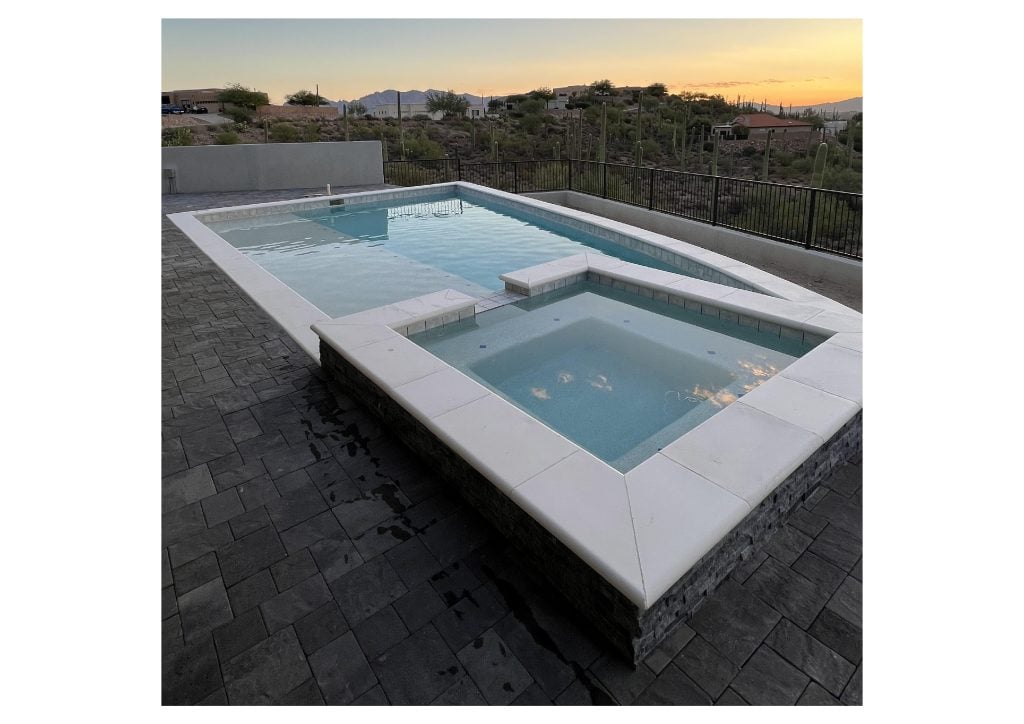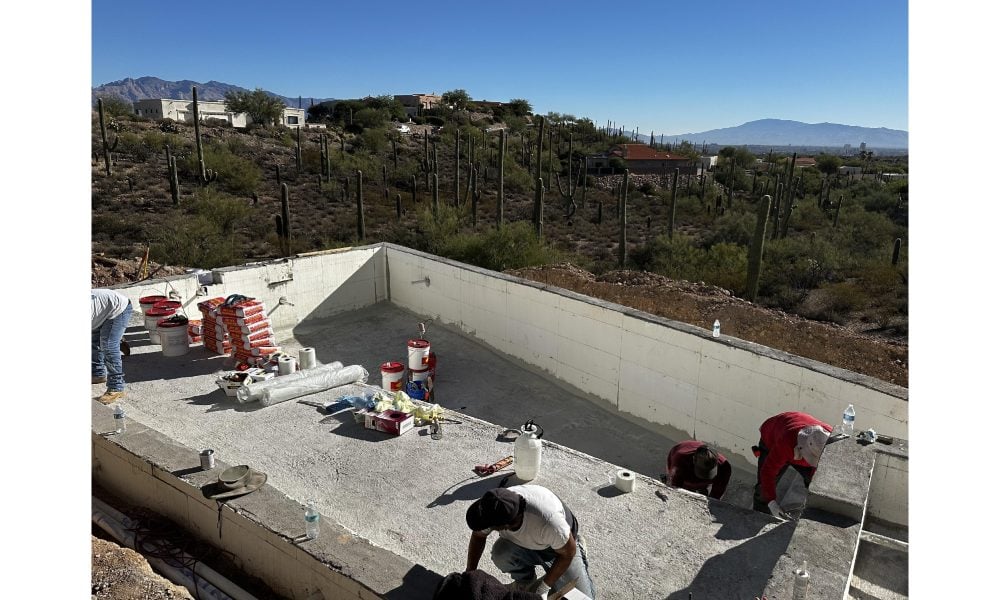ICF (Insulated Concrete Form) pools are becoming increasingly popular for both residential and commercial applications. But why? Read more to learn how this innovative construction method is transforming the pool construction industry.
How are ICF pools built?
ICF swimming pools are constructed using Insulated Concrete Forms (ICF), a building system
that uses hollow blocks or panels made of expanded polystyrene (EPS) or other insulating
materials. These forms are stacked and filled with reinforced concrete, creating a strong and
energy-efficient pool structure.
Why are ICF pool builds on the rise?
With multiple benefits like quicker build time vs. traditional concrete pools, resistance to
cracking, and ability to withstand harsh weather conditions, ICF pools are attracting the attention of clients seeking high-quality and customizable pools.
Key advantages they offer include:
- Durability and Strength: ICF pools are built with reinforced concrete, which makes
them strong and long-lasting. Like traditional concrete pools, this durability is a major
selling point, as it results in lower maintenance costs over time compared to other types
of pools. - Energy Efficiency & Insulation Benefits: ICF pools are highly energy-efficient as the
insulating properties of the concrete forms help to maintain the pool’s temperature and
provide better thermal retention. This reduces the need for heating, leading to lower
energy costs, and is beneficial in cooler climates or for extending the swimming season. - Design Customization: ICF allows for extensive customization in pool design. Builders
can easily create unique shapes and features, making it ideal for homeowners looking
for a custom pool that fits their specific needs. - Cost-Effectiveness Over Time: While the initial construction costs of an ICF pool may
be higher than other pool types, the long-term savings on energy, maintenance, and
repairs can make it a very cost-effective option in the long run. - Ease of Construction: ICF blocks are lightweight and easy to handle, speeding up the
construction process. Once assembled, the forms are filled with concrete to create the
structural pool walls.

How to increase the durability of ICF pools
If you are building an ICF pool, there is really only one system that sets the standard for
construction and waterproofing… BASECRETE XTREME®!
BASECRETE XTREME® stands out with its 3-in-1 formula, superior waterproof bond coat, and
ease of application, setting a new benchmark in the waterproofing market. Effective on ICF, EPS (Expanded Polystyrene), CMU wall (Concrete Masonry Unit) or under a stucco system when the concrete substrate requires added strength or durability, it not only waterproofs but also reinforces, using a fiber mesh additive. The additive of the fiber greatly increases flexural
strength, which is essential in cooler climates that have freeze thaw cycles. It also improves
surface movement like settlement, vibration or tensile strength, increasing durability and impact resistance.
BASECRETE XTREME® is easy to apply by simply mixing the kit’s 5 gallon pail of patented
resin with its three 50lb bags of special cement, reinforced with fiber. One kit covers a 225
square foot area at ⅛” thick, achieving a waterproof surface.
And forget about priming! BASECRETE XTREME® allows for superior adhesion directly to the
substrate with exceptional resistance against chemicals and salt.
What to learn more about ICF pool construction? Discover how BASECRETE XTREME® can transform your ICF pool projects by visiting https://basecreteusa.com today.
The post ICF Pools: Why You Should Consider the Hottest Trend in Pool Construction and How to do it Well appeared first on PoolMagazine.com – Get The Latest Pool News.





